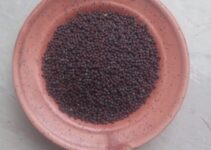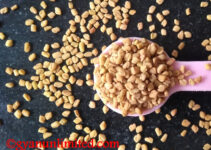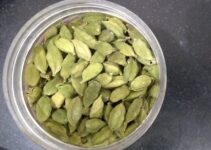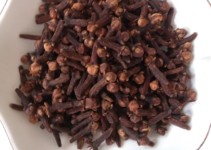What do you mean by Cinnamon?
Cinnamon has many health benefits and medicinal uses and has been used for thousands of years for its ayurvedic and natural properties. Cinnamon is one of the widely used household spices. Its home remedy is of greater significance, plays a vital role in conditions like loss of appetite, indigestion, and dental pain, and is also used as a deodorant. It’s an evergreen plant with 9-12 meters in height. The flowers are small and long-term. The parts used for cinnamon are dried inner bark of shoots, dried branches, and oil. Due to the presence of plenty of antioxidants, it is also regarded as a superfood.

10 impressive health benefits of cinnamon
- Antioxidant: It has an adequate amount of antioxidants named polyphenols, which protect the body from free radicals and are thus good for fighting off diseases.
- Hair health: The superfood spice is also widely used in the cosmetic industry for fragrant hair washes and bath powders.
- Anti-inflammatory: In a recent study, it has been found that the spice is used against inflammation to fight infections and tissue health. Thus, its use is beneficial during viral infections, including coronavirus and COVID-19 patients.
- Skin glowing: The application of pastes on the face helps to minimise the impact of depigmentation. However, it should be washed immediately (within 2 minutes) as it irritates the skin.
- Penile erection: The massage of cinnamon oil on the penile region helps to treat penile erection dysfunction.
- Cut the risk of heart disease: Research has shown that the use of cinnamon reduces bad cholesterol and triglycerides and also reduces blood pressure.
- Reduce insulin resistance: The use of medicinal spice dramatically reduces insulin resistance, thus being good for type 2 diabetes and increasing insulin sensitivity.
- Anti-diabetic effect: It helps lower blood sugar. It has been found that it decreases the amount of sugar that enters your blood just after the meal because of interference with digestive enzymes.
- Teeth pain: Cinnamon oil is good for treating teeth pain. For this, soak the cotton swab in cinnamon oil and place it in the dental cavities. It not only reduces the pain but also minimises the infection. Chewing cinnamon is also suitable for strengthening the teeth, refreshing the mouth, and overcoming bad breath.
- Menstrual bleeding: The use of cinnamon with Ashokarishta ensures to curb of heavy menstrual bleeding.
Seven medicinal uses of cinnamon
- Neurodegenerative diseases: A study was conducted in mice where cinnamon helped protect neurons and improve motor function. Thus, it helps to fight Alzheimer’s.
- Joint pain: The regular massage of cinnamon oil on joints helps to relieve pain and swelling in these areas.
- Voice clarity: The decoction of cinnamon, coriander seeds, and dried ginger, when taken 2 tbsp, three times daily, is helpful to treat hoarseness of voice. It is also effective in cases of cough, asthma, and pleurisy.
- Promotes appetite: The combination of cinnamon, cardamom, and Tamalpatra is used in the preparation of medicated wines, which helps to promote appetite and ensures good digestion.
- Cough remedy: The decoction of cinnamon and Piper longum if taken 3 tbsp, three times daily, helps relieve cough, mainly due to Kapha.
- Dysentery: Mix cinnamon powder, Shorea robusta, and the pulp of raw Aegle marmelos fruits in 1 1:12 proportions. Take this mixture of 1 tbsp thrice daily, with curd and a little jaggery. It helps to decrease dysentery.
- Anti-cancerous: It has been studied that cinnamon is used in the prevention and treatment of cancer.
10 important facts about cinnamon
- Cinnamon has a long history of thousands of years.
- It first can be traced to the Torah and the Jewish religious texts.
- The Chinese and the Romans were also well-versed in its medicinal values.
- Ayurvedic textbooks also have elaborate descriptions of this vitaldrying herb.
- Every part of the plant emanates aroma after getting bruised.
- The bark shrinks and curls into a cylinder when drying.
- The spice comes from the inner bark of trees called Cinnamomum.
- Earlier, it was regarded as a gift pack of kings.
- The distinct flavour of the spice goes to the biological compound called cinnamaldehyde, which has a significant impact on health.
- It is used to prepare Mexican chocolate, Persian cuisine, and chocolate.
Cinnamon ayurvedic properties
- Taste: Pungent, bitter, and sweet
- Post digestive effect: Pungent
- Potency: Hot
- Attributes: Light, dry and sharp
- Dosha: Alleviates Kapha and Vata, aggravates Pitta
- Natural use: It’s a natural preservative.
Nutritional facts of cinnamon
Cinnamon is full of minerals, vitamins, and other nutrients. It is loaded with so many macro and micro-nutrients. The 100 grams of cinnamon has Energy (247 Kcal ), Carbohydrate (80.6g), Sugars (2.2g), Dietary fibre (53.1g), Fat (1.2g), Protein (4g), Vitamins (A, B complex, C, E & K) and minerals like Calcium, Iron, Magnesium, Phosphorous, Potassium, Sodium, and Zinc.
Species of cinnamon
The different species of cinnamon are given below:
- Cinnamomum cassia: it is the most common form of cinnamon
- Burmanni
- Loureiroi
- Verum
- Citriodorum
Side effects of cinnamon
- It has been seen that extensive use of cinnamon leads to liver problems.
- Research has also shown that the presence of coumarin may increase the risk of certain cancers.
- Cinnamon contains cinnamaldehyde, which may cause mouth sores if it is taken in excess quantity.
- Taking too much cinnamon may help lower blood sugar.
- Eating cinnamon powder may cause breathing problems as these finer particles easily enter the respiratory tract and cause coughing and gagging.
- The taking of cinnamon may interact with the medicines of heart disease, sugar, and liver.






